All Stories
-
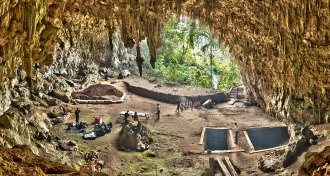 Anthropology
AnthropologyHobbits died out earlier than thought
Tiny Indonesian hominids disappeared earlier than thought, around 50,000 years ago.
By Bruce Bower -
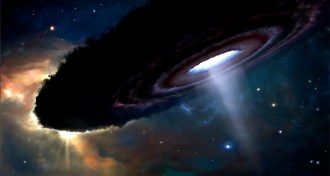 Astronomy
AstronomyThis eclipse goes on and on
The longest known stellar eclipse hides a nearby star for nearly 3.5 years behind a thick clump of orbiting dust once every 69 years.
-
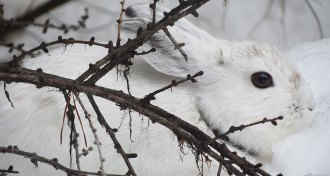 Animals
AnimalsClimate change now bigger menace than forest loss for snowshoe hares
Shorter snow seasons push climate change ahead of direct habitat loss as menace for Wisconsin snowshoe hares.
By Susan Milius -
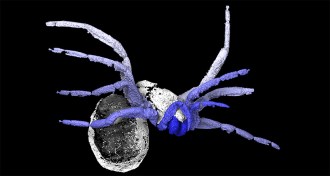 Animals
AnimalsAncient arachnid was almost a spider
A newly discovered ancient arachnid might offer clues on spider origins.
-
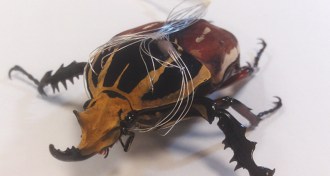
-

-
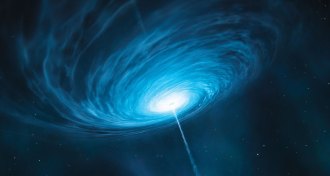 Astronomy
AstronomyEarth’s hurricanes have nothing on this quasar
In a remote galaxy, a cosmic hurricane around a supermassive black hole is driving winds at nearly 20 percent of the speed of light.
-
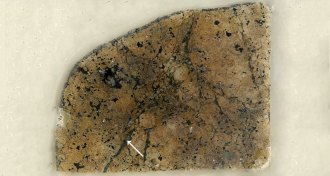 Earth
EarthOne of Earth’s missing minerals found locked inside meteorite
Scientists have discovered the last undiscovered dense mineral of the pyroxene group in a meteorite.
-
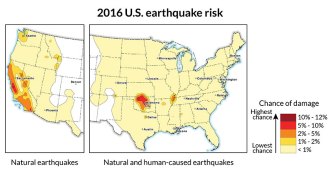 Earth
EarthQuake risk in parts of central U.S. as high as in fault-filled California
A new report from the U.S. Geological Survey shows an increased earthquake hazard from human activities such as the disposal of fracking wastewater.
-
 Climate
ClimateMaximum size for Arctic sea ice hits a new low
Warm temperatures helped drop the Arctic sea ice maximum to the smallest size on record.
-
 Astronomy
AstronomyJapan’s new X-ray space telescope has gone silent
Japan’s newest orbiting X-ray telescope, ASTRO-H, has gone silent and might have broken into several pieces, the Japanese space agency reports.
-
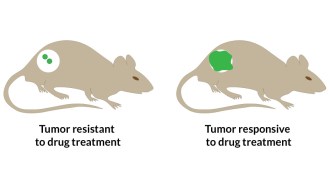 Health & Medicine
Health & MedicineCancer killers send signal of success
Newly designed nanoparticles deliver anticancer drugs and updates on tumor death.